President Emomali Rahmon Attends the 77th Session of the ESCAP
Read also
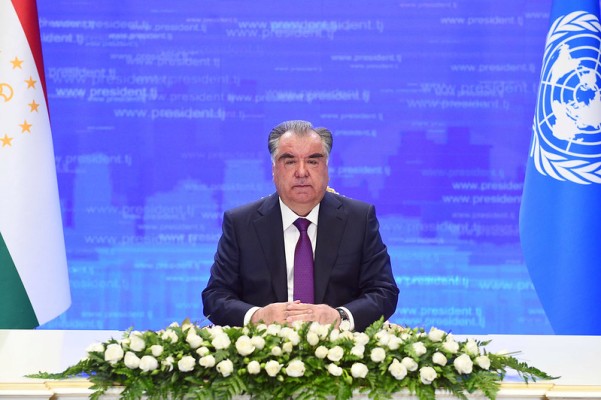
DUSHANBE, 26.04.2021 (NIAT Khovar) – The Founder of Peace and National Unity, Leader of the Nation, President of Tajikistan Emomali Rahmon attended the 77th session of the Economic and Social Commission for Asia and the Pacific (ESCAP) under the theme “Building back better from crises through regional cooperation in Asia and the Pacific,» which was held online.
The meeting was also attended by the President of the UN General Assembly Volkan Bozkir, UN Economic and Social Council (ECOSOC) Munir Akram, Executive Secretary of the United Nations Economic and Social Commission for Asia and the Pacific (ESCAP) Armida Salsiah Alisjahbana, Presidents of Afghanistan, Azerbaijan, Indonesia, Kiribati, Kyrgyzstan and the Marshall Islands, Mongolia, Prime Ministers of Thailand, Tuvalu, Bangladesh, Bhutan, Cambodia, Fiji, Pakistan, Sri Lanka, and Uzbekistan.
The session focused on the analyses of the socio-economic impacts of the pandemic in Asia and the Pacific, took stock of action taken so far, and set out a policy agenda for building regional cooperation centered around four critical interconnected areas: broadening social protection, investing in a sustained recovery, strengthening connectivity and supply chains, and mending a broken relationship with nature.
In his address, President Emomali Rahmon noted that today’s event is very important and timely, given the current threats and the impacts of the COVID-19 pandemic, which is still ongoing in many countries.
He noted that the global intensification of the pandemic had forced the revision of the public budget for 2020.
“More than 30 hospitals with 7,000 beds and 5,400 doctors and medical staff were mobilized for the full and timely treatment of covid. Over 16,000 beds were prepared in 92 hospitals and medical institutions. Additional financial resources were allocated from the state budget to the health sector to purchase medical equipment and medicines, and for the construction of temporary hospitals and the support of medical personnel” he said.
President Rahmon also emphasized other concrete and valuable measures taken and implemented by government in this direction, in particular providing support to the private sector, significant tax and credit benefits, privileges and compensation to small and medium business, social benefits for vulnerable groups, creation of over 193, 000 permanent and seasonal jobs during the pandemic, ensuring food security, and increasing the level of domestic production.
“Given our socially oriented public budget, 48% of the budget expenses last year was allocated to the social sector,» he said.
“Furthermore, to eliminate the consequences of the pandemic, the government has expanded productive cooperation with development partners, in particular with the International Monetary Fund, the World Bank, Asian Development Bank, and other international financial institutions.»
President Rahmon also offered his profound gratitude to all states and international organizations, including the UN and its specialized agencies, particularly WHO, development partners, international and regional financial institutions for support given to Tajikistan during the pandemic.
He noted that regardless of the taken measures, the economy of Tajikistan still suffers from the consequences of the pandemic, although no new cases of COVID-19 have been registered in Tajikistan since the beginning of the year.
“Post COVID-19 period economic recovery, stimulation of small and medium-sized businesses, support of vulnerable groups, implementation of anti-epidemiological measures, including immunization programs, require additional financial resources” he added.
In this situation, along with expanding social protection, Tajikistan needs to invest in sustainable economic recovery, support trade, ensure smooth transportation of essential goods, in particular food and medicine, and protect the environment.
In this sensitive and challenging time, President Rahmon called on the countries of the Asia-Pacific region to cooperate in countering possible future threats and crises, diversify the economy, promote the digitalization process, adapt to the climate change, and foster the transition to green economy.











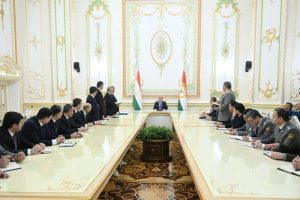 President Emomali Rahmon Makes Personnel Appointments
President Emomali Rahmon Makes Personnel Appointments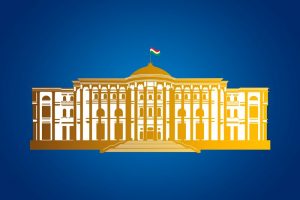 Congratulatory Message of His Excellency Emomali Rahmon, President of the Republic of Tajikistan, on the 33rd Anniversary of the Armed Forces
Congratulatory Message of His Excellency Emomali Rahmon, President of the Republic of Tajikistan, on the 33rd Anniversary of the Armed Forces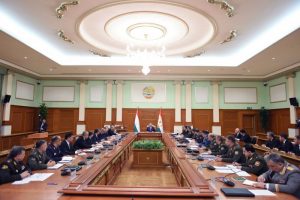 President Emomali Rahmon Holds Security Council meeting
President Emomali Rahmon Holds Security Council meeting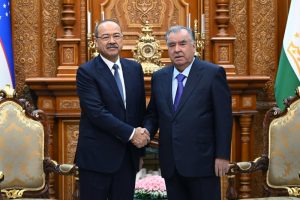 President Emomali Rahmon Receives the Prime Minister of the Republic of Uzbekistan Abdulla Aripov
President Emomali Rahmon Receives the Prime Minister of the Republic of Uzbekistan Abdulla Aripov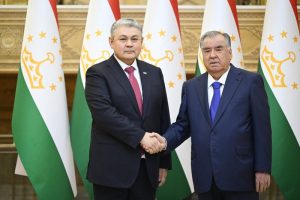 President Emomali Rahmon, Received the Minister of Foreign Affairs of the Republic of Kazakhstan
President Emomali Rahmon, Received the Minister of Foreign Affairs of the Republic of Kazakhstan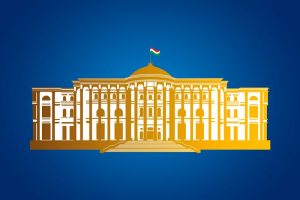 President Emomali Rahmon Enacts New Laws
President Emomali Rahmon Enacts New Laws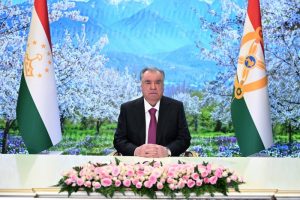 President Emomali Rahmon Sends Festive Greetings to President Xi for Chinese New Year
President Emomali Rahmon Sends Festive Greetings to President Xi for Chinese New Year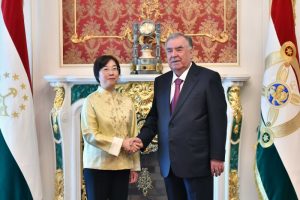 President Emomali Rahmon Receives AIIB President Zou Jiayi in Dushanbe
President Emomali Rahmon Receives AIIB President Zou Jiayi in Dushanbe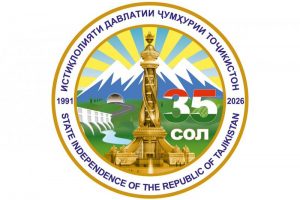 President Emomali Rahmon Approves Emblem for the 35th Anniversary of Tajikistan’s State Independence
President Emomali Rahmon Approves Emblem for the 35th Anniversary of Tajikistan’s State Independence














